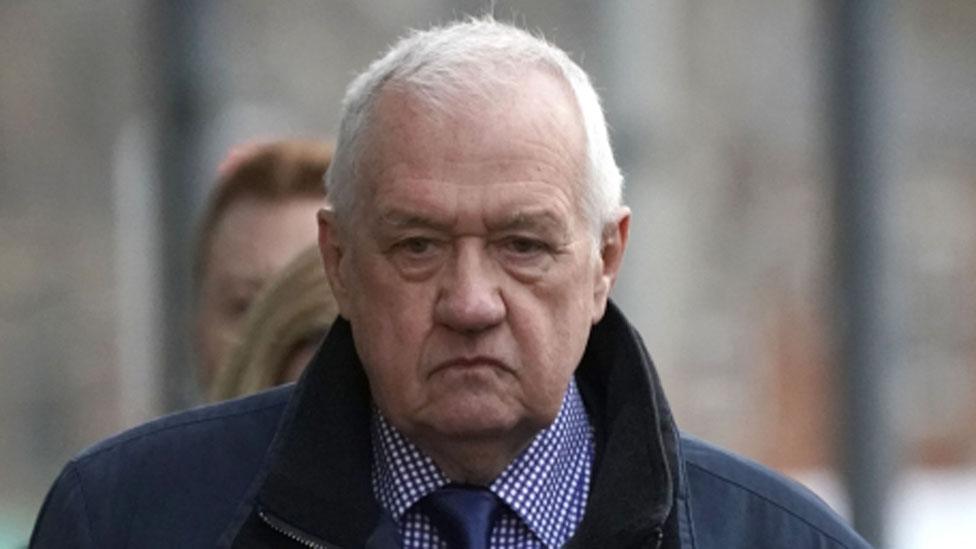Hillsborough trial: David Duckenfield 'singled out unfairly'
- Published
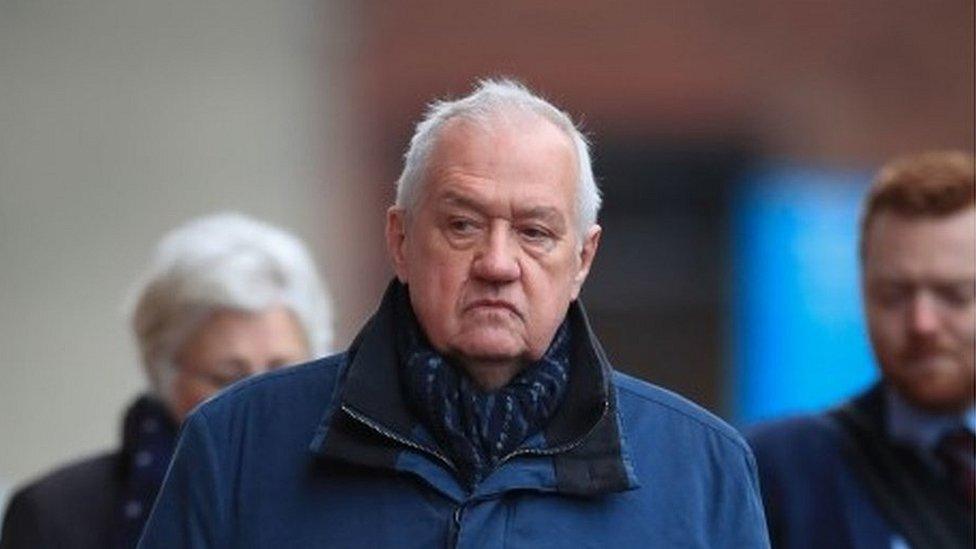
David Duckenfield denies the gross negligence manslaughter of 95 Liverpool fans
Match commander David Duckenfield has been "singled out unfairly" for prosecution over the deaths of fans at Hillsborough, his lawyer told a court.
Benjamin Myers QC, who is defending the retired officer, said other people and factors played a part in the disaster.
He told the jury at Preston Crown Court his client "did his best in very difficult circumstances".
Mr Duckenfield, 74, of Ferndown, Dorset, denies the gross negligence manslaughter of 95 Liverpool fans.
'Not negligent'
Mr Myers told the jury he would look at events "critically and realistically" but in no way sought to insult Liverpool Football Club, its supporters or the city of Liverpool.
He said the tragedy at the 1989 FA Cup semi-final happened "by virtue of bad stadium design, bad planning, some aspects of crowd behaviour, some aspects of police behaviour, mistakes by various individuals and genuine human error".
Mr Myers said it was a natural human reaction to look for someone to blame but that sympathy for those who suffered "can never be a reason to convict".
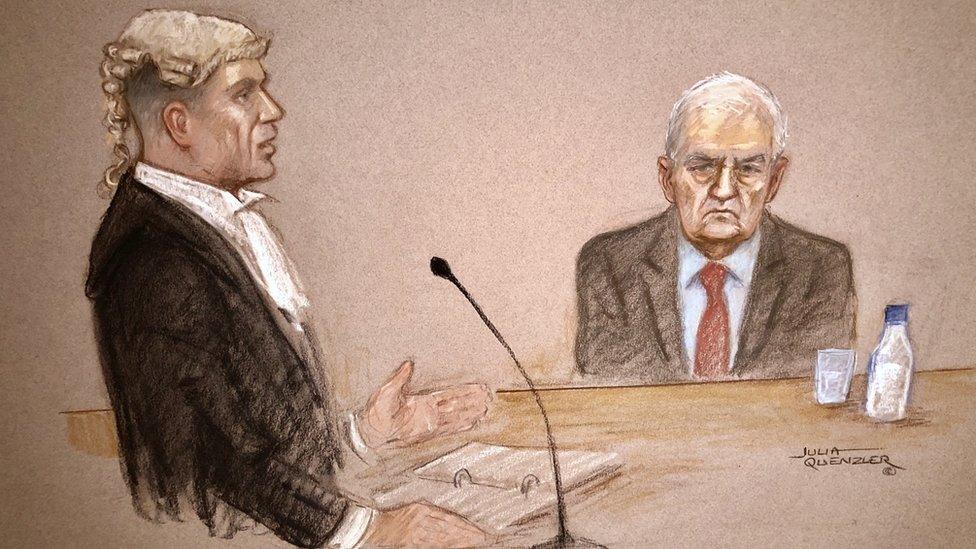
Benjamin Myers QC gave an opening speech in defence of Mr Duckenfield
Mr Myers said: "It is Mr Duckenfield's case that he is not negligent and he did his best in very difficult circumstances and, even if things could have been done better with hindsight at the time, he did the best he could."
Mr Duckenfield was appointed as match commander less than three weeks before the game, had no real previous experience in the role, and limited experience of Hillsborough stadium, Mr Myers said.
He said of the defendant: "He was not equipped with special powers to anticipate things that everyone else did not."
Earlier, the court heard that police officers warned there would be deaths if nothing was done to let a growing crowd of fans in before kick off.
The jury was played recordings of police radio transmissions in which officers could be heard warning there was chaos outside the ground and that thousands of people could not get in.
Three requests were made by Supt Roger Marshall for exit gates to be opened. On the third occasion he said people would be killed if they were not allowed into the ground, jurors were told.
Prosecutor Richard Matthews QC said a witness described former chief superintendent Mr Duckenfield responding: "If people are going to get killed, open the gates."
'Extraordinarily bad failings'
The court heard that when the gate was opened, allowing more than 2,000 fans to enter in five minutes, he did not consider the consequences and failed to stop people going down a central tunnel.
Mr Matthews told the court that Mr Duckenfield had failed to assess the number of fans already on the terraces.
The prosecutor said Mr Duckenfield had "the responsibility of command from a bird's eye view and a host of cameras and screens to assist him" but failed to get any assessment of the "desperate situation".
He said Mr Duckenfield's failings "went beyond error or serious error, and are right to be viewed as extraordinarily bad, in the face of what was both a serious and obvious risk of death".
The density at the front of pen three of the Leppings Lane end at 15:03 BST, three minutes after kick off, was as high as 10 people per square metre, Mr Matthews said.

The 96 victims
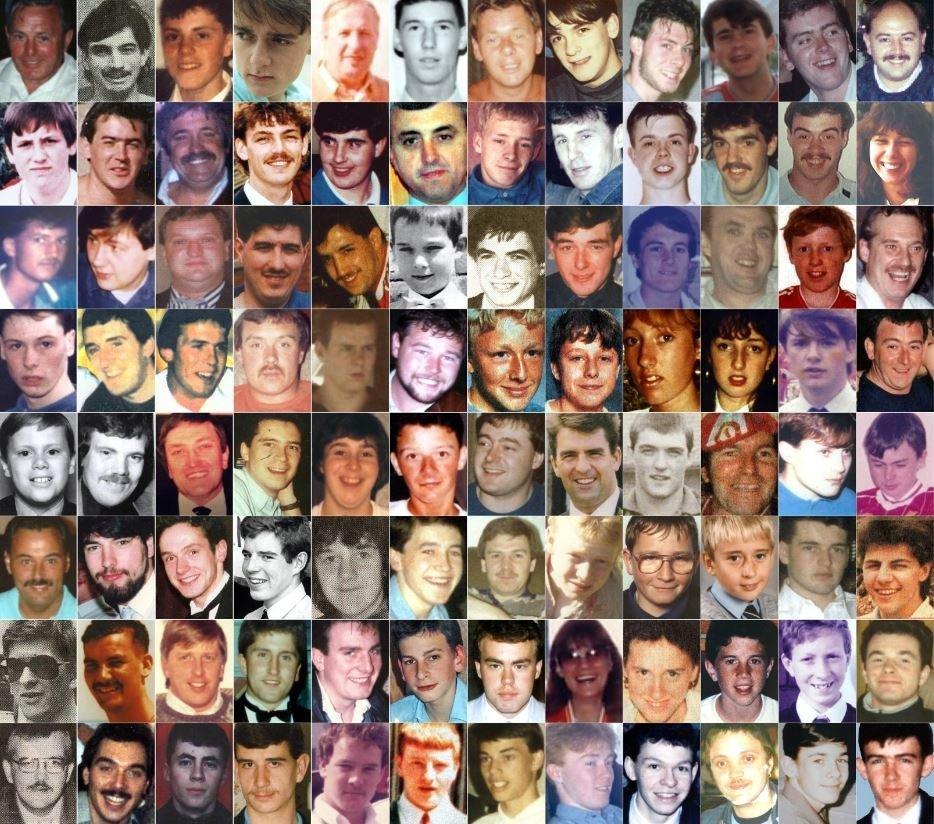
The 96 people who lost their lives in the Hillsborough disaster

The prosecutor told the jury they would hear from Liverpool fans who were on the terrace, including off-duty police officer Stephen Allen.
"We will hear from him what, in short, I can describe now as the remarkable help he gave and the scene of horror around him," Mr Matthews said.
Supporter Colin Moneypenny has "described that he was just shouting and screaming and trying to get people to help with no effect for the whole of the period", the court heard.
"He could see police officers on the other side of the perimeter fence and it appeared they were doing absolutely nothing," Mr Matthews said.
The jury was also told the safety certificate for the stadium was "very out of date" at the time of the disaster.
Former Sheffield Wednesday club secretary Graham Mackrell, 69, who is on trial alongside Mr Duckenfield, denies safety breaches relating to the crush at the stadium in April 1989.
He was the club's designated safety officer at the time of the FA Cup semi-final between Liverpool and Nottingham Forest.
The trial continues.
- Published16 January 2019
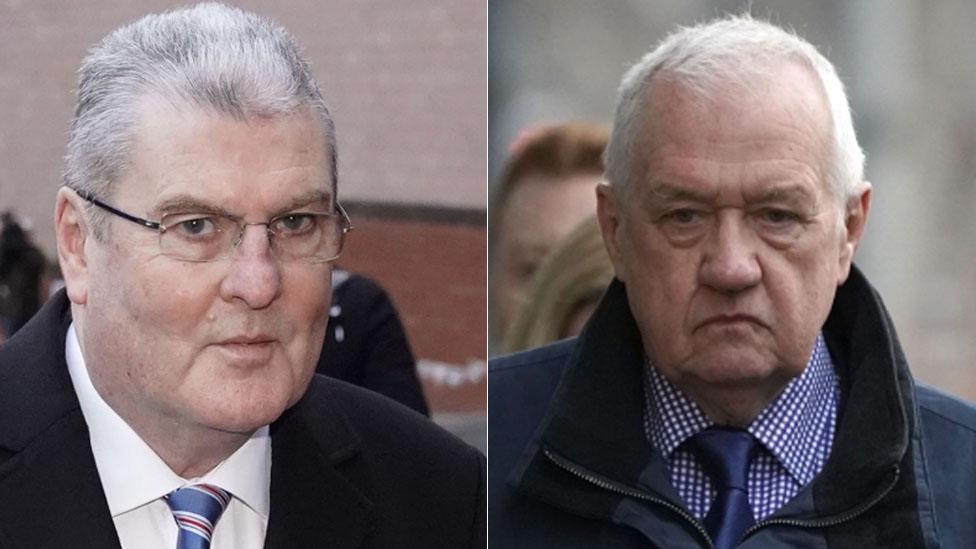
- Published15 January 2019
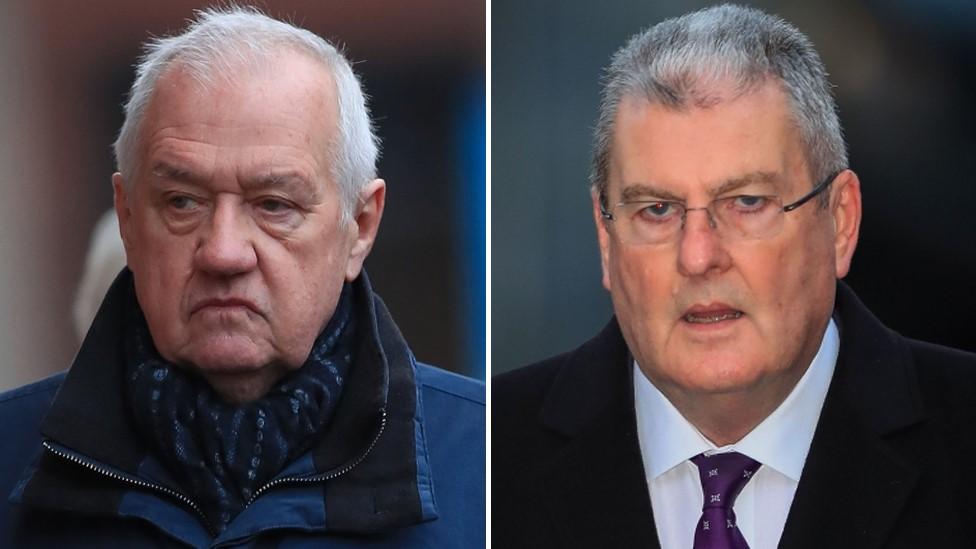
- Published14 January 2019
